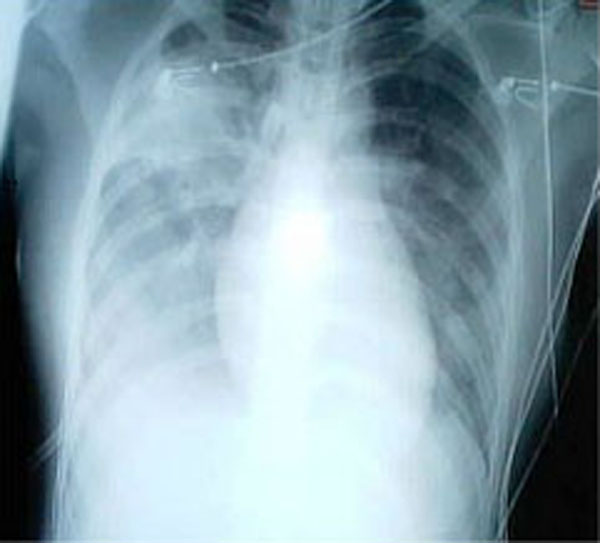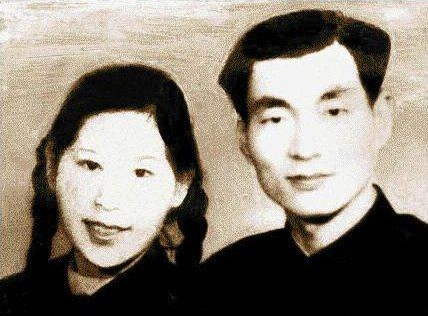|
Wu Yi (politician)
Wu Yi (born November 1938) is a retired Chinese politician. She was one of the country's most visible leaders during the first decade of the 21st century, best known for taking on the role of Minister of Health from April 2003 during the SARS outbreak, shortly after becoming Vice Premier of the State Council, a position she served in between March 2003 and March 2008. She was also a member of the Politburo of the Chinese Communist Party. She has since retired and left public life. She was commonly referred to as the "iron lady" by Chinese media, and was known to be a tough negotiator internationally. Biography Wu was born in November 1938 to an ordinary intellectual family based in Wuhan, but she traces her ancestry to nearby Huangmei County in Hubei province. She was the younger of two children. Her parents died while she was young, so she was brought up by her brother, who was eight years her senior. In April 1962, she joined the Chinese Communist Party. In August of the sam ... [...More Info...] [...Related Items...] OR: [Wikipedia] [Google] [Baidu] |
Wu (surname)
''Wú'' is the pinyin transliteration of the Chinese surname wikt:吳, 吳 (Simplified Chinese wikt:吴, 吴), which is a common surname (family name) in Mainland China. Wú (吳) is the sixth name listed in the Song Dynasty Chinese classics, classic ''Hundred Family Surnames''. In 2019 Wu was the ninth most common surname in Mainland China. A 2013 study found that it was the eighth most common surname, shared by 26,800,000 people or 2.000% of the population, with the province having the most being Guangdong. The Cantonese and Hakka language, Hakka transliteration of 吳 is Ng (surname), Ng, a syllable made entirely of a nasal consonant while the Min Nan transliteration of 吳 is Ngo, Ngoh, Ngov, Goh, Go, Gouw, depending on the regional variations in Min Nan pronunciation. Shanghainese transliteration of 吳 is Woo. 吳 is also one of the most common surnames in Korea. It is spelled O (surname), 오 in Hangul and romanized O by the three major romanization systems, but more commo ... [...More Info...] [...Related Items...] OR: [Wikipedia] [Google] [Baidu] |
Zhang Wenkang
Zhang Wenkang(born 1940 in Nanhui, Shanghai) was the health minister of China during the SARS outbreak who was sacked for mishandling the matter. Zhang was a supporter of Jiang Zemin, former General Secretary of the Chinese Communist Party The general secretary of the Chinese Communist Party () is the head of the Chinese Communist Party (CCP), the sole ruling party of the People's Republic of China (PRC). Since 1989, the CCP general secretary has been the paramount leader o .... After he was fired, he was placed in various ceremonial positions. References 1940 births Living people People's Republic of China politicians from Shanghai {{China-politician-stub ... [...More Info...] [...Related Items...] OR: [Wikipedia] [Google] [Baidu] |
Severe Acute Respiratory Syndrome
Severe acute respiratory syndrome (SARS) is a viral respiratory disease of zoonotic origin caused by the severe acute respiratory syndrome coronavirus (SARS-CoV or SARS-CoV-1), the first identified strain of the SARS coronavirus species, ''severe acute respiratory syndrome–related coronavirus'' (SARSr-CoV). The first known cases occurred in November 2002, and the syndrome caused the 2002–2004 SARS outbreak. In the 2010s, Chinese scientists traced the virus through the intermediary of Asian palm civets to cave-dwelling horseshoe bats in Xiyang Yi Ethnic Township, Yunnan.The locality was referred to be "a cave in Kunming" in earlier sources because the Xiyang Yi Ethnic Township is administratively part of Kunming, though 70 km apart. Xiyang was identified on * For an earlier interview of the researchers about the locality of the caves, see: SARS was a relatively rare disease; at the end of the epidemic in June 2003, the incidence was 8,469 cases with a case fatality rate (C ... [...More Info...] [...Related Items...] OR: [Wikipedia] [Google] [Baidu] |
Intellectual Property
Intellectual property (IP) is a category of property that includes intangible creations of the human intellect. There are many types of intellectual property, and some countries recognize more than others. The best-known types are patents, copyrights, trademarks, and trade secrets. The modern concept of intellectual property developed in England in the 17th and 18th centuries. The term "intellectual property" began to be used in the 19th century, though it was not until the late 20th century that intellectual property became commonplace in the majority of the world's legal systems."property as a common descriptor of the field probably traces to the foundation of the World Intellectual Property Organization (WIPO) by the United Nations." in Mark A. Lemley''Property, Intellectual Property, and Free Riding'', Texas Law Review, 2005, Vol. 83:1031, page 1033, footnote 4. The main purpose of intellectual property law is to encourage the creation of a wide variety of intellectual goo ... [...More Info...] [...Related Items...] OR: [Wikipedia] [Google] [Baidu] |
World Trade Organization
The World Trade Organization (WTO) is an intergovernmental organization that regulates and facilitates international trade. With effective cooperation in the United Nations System, governments use the organization to establish, revise, and enforce the rules that govern international trade. It officially commenced operations on 1 January 1995, pursuant to the 1994 Marrakesh Agreement, thus replacing the General Agreement on Tariffs and Trade (GATT) that had been established in 1948. The WTO is the world's largest international economic organization, with 164 member states representing over 98% of global trade and global GDP. The WTO facilitates trade in goods, services and intellectual property among participating countries by providing a framework for negotiating trade agreements, which usually aim to reduce or eliminate tariffs, quotas, and other restrictions; these agreements are signed by representatives of member governmentsUnderstanding the WTO' Handbook at WTO officia ... [...More Info...] [...Related Items...] OR: [Wikipedia] [Google] [Baidu] |
Jiang Qing
Jiang Qing (19 March 191414 May 1991), also known as Madame Mao, was a Chinese communist revolutionary, actress, and major political figure during the Cultural Revolution (1966–1976). She was the fourth wife of Mao Zedong, the Chairman of the Communist Party and Paramount leader of China. She used the stage name Lan Ping () during her acting career (which ended in 1938), and was known by many other names. Qing married Mao in Yan'an in November 1938 and served as the inaugural " First Lady" of the People's Republic of China. Jiang was best known for playing a major role in the Cultural Revolution and for forming the radical political alliance known as the " Gang of Four". Jiang served as Mao's personal secretary in the 1940s and was head of the Film Section of the Communist Party's Propaganda Department in the 1950s. She served as an important emissary for Mao in the early stages of the Cultural Revolution. In 1966, she was appointed deputy director of the Central Cu ... [...More Info...] [...Related Items...] OR: [Wikipedia] [Google] [Baidu] |
Chinese Economic Reform
The Chinese economic reform or reform and opening-up (), known in the West as the opening of China, is the program of economic reforms termed " Socialism with Chinese characteristics" and "socialist market economy" in the People's Republic of China (PRC). Led by Deng Xiaoping, often credited as the "General Architect", the reforms were launched by reformists within the Chinese Communist Party (CCP) on December 18, 1978, during the "Boluan Fanzheng" period. The reforms went into stagnation after the military crackdown on 1989 Tiananmen Square protests, but were revived after Deng Xiaoping's Southern Tour in 1992. In 2010, China overtook Japan as the world's second-largest economy by nominal GDP and in 2017 overtook the United States by becoming the world's largest economy by GDP (PPP). Prior to the reforms, the Chinese economy was dominated by state ownership and central planning. From 1950 to 1973, Chinese real GDP per capita grew at a rate of 2.9% per year on average, albei ... [...More Info...] [...Related Items...] OR: [Wikipedia] [Google] [Baidu] |
State Council Of The People's Republic Of China
The State Council, constitutionally synonymous with the Central People's Government since 1954 (particularly in relation to local governments), is the chief administrative authority of the People's Republic of China. It is chaired by the premier and includes each cabinet-level executive department's executive chief. Currently, the council has 35 members: the premier, one executive vice premier, three other vice premiers, five state councilors (of whom three are also ministers and one is also the secretary-general), and 26 in charge of the Council's constituent departments. The State Council directly oversees provincial-level People's Governments, and in practice maintains membership with the top levels of the CCP. Aside from very few non-CCP ministers, members of the State Council are also members of the CCP's Central Committee. Organization The State Council meets every six months. Between meetings it is guided by a (Executive Meeting) that meets weekly. The standin ... [...More Info...] [...Related Items...] OR: [Wikipedia] [Google] [Baidu] |
Zhu Rongji
Zhu Rongji (; IPA: ; born 23 October 1928) is a retired Chinese politician who served as Premier of the People's Republic of China from 1998 to 2003 and CCP Politburo Standing Committee member from 1992 to 2002 along with the Chinese Communist Party's general secretary Jiang Zemin. In his capacity as First Vice-Premier and Premier, Zhu was regarded as the leading figure behind China's economic policy in the 1990s and early 2000s. He also served as Mayor of Shanghai from 1988 to 1991 and Communist Party secretary of Shanghai from 1989 to 1991. He served alongside CCP leader Jiang Zemin and had a testy relationship with Jiang. Zhu had a reputation as a tough but pragmatic administrator. During his office, China's economy saw double digit growth. Zhu was also much more popular than his predecessor Li Peng among the Chinese public. However, Zhu's opponents stipulate that his tough and pragmatic stance on policy was unrealistic and unnecessary, and many of his promises were left un ... [...More Info...] [...Related Items...] OR: [Wikipedia] [Google] [Baidu] |
15th Central Committee Of The Chinese Communist Party
The 15th Central Committee of the Chinese Communist Party was in session from 1997 to 2002. The 14th Central Committee preceded it. It was followed by the 16th Central Committee of the Chinese Communist Party. This was the first Central Committee that current Chinese Paramount Leader Xi Jinping was elected to, as an alternative member. It elected the 15th Politburo of the Chinese Communist Party in 1997. Plenary sessions were held by the politburo. Members :''In stroke order of surnames:'' Brief chronology #''1st Plenary Session'' #*Date: September 19, 1997 #*Location: Beijing #*Significance: Jiang Zemin was re-appointed General Secretary of the Chinese Communist Party and Chairman of the Central Military Commission. A 24-members Politburo, a 7-members Politburo Standing Committee and a 7-members Secretariat were elected. #''2nd Plenary Session'' #*Date: February 25–26, 1998 #*Location: Beijing #*Significance: The meeting approved lists of nominees for top posts of the 9t ... [...More Info...] [...Related Items...] OR: [Wikipedia] [Google] [Baidu] |
14th Central Committee Of The Chinese Communist Party
The 14th Central Committee of the Chinese Communist Party was in session from 1992 to 1997. It held seven plenary sessions. It was preceded by the 13th Central Committee. It was elected by the 14th National Congress of the Chinese Communist Party and in turn elected the 14th Politburo of the Chinese Communist Party. Members :''In stroke order of surnames:'' Brief chronology #''1st Plenary Session'' #*Date: October 19, 1992 #*Location: Beijing #*Significance: Jiang Zemin was elected General Secretary and Chairman of the Central Military Commission. A 22-members Politburo, a 7-members Politburo Standing Committee and a 5-members Secretariat were elected. Hu Jintao entered the Politburo Standing Committee for the first time as its youngest member. #''2nd Plenary Session'' #*Date: March 5–7, 1993 #*Location: Beijing #*Significance: The meeting approved some economic measures, a program for institutional reform, and lists of nominees for top posts of the 8th National People's Cong ... [...More Info...] [...Related Items...] OR: [Wikipedia] [Google] [Baidu] |






.jpg)
